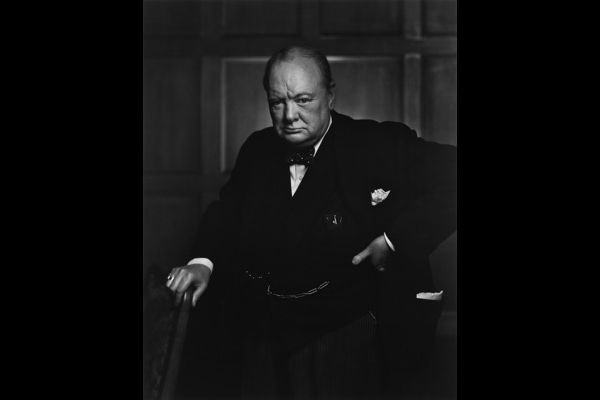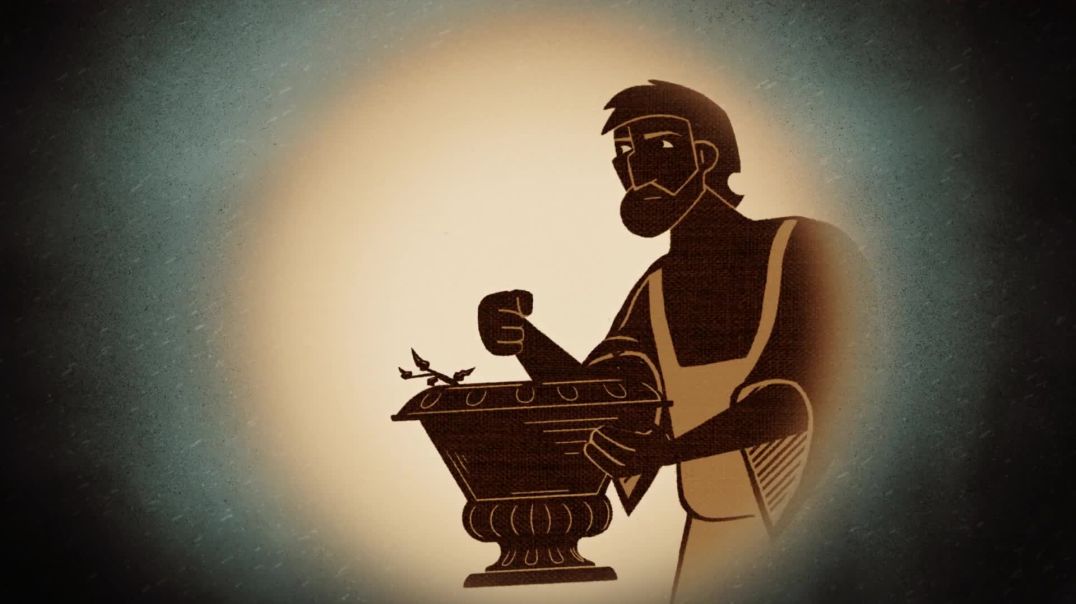Winston Churchill: A Colossus of the 20th Century
Winston Churchill remains one of the most iconic and complex figures of the 20th century.1 A statesman, orator, soldier, and writer, his life spanned an era of immense change, from the rigidity of the Victorian age to the dawn of the nuclear era. He steered Britain through its darkest hour, rallying a nation against the seemingly unstoppable tide of Nazi Germany, and in doing so, etched his name indelibly into the annals of history.2 Yet, his legacy is not without its shadows, marked by controversies and a character that often defied easy categorization.3 This article delves into the multifaceted life of Winston Churchill, exploring his early years, his rise to prominence, his wartime leadership, and the enduring impact he left on the world.
Early Life and Formative Years: The Maverick Emerges
Born on November 30, 1874, at Blenheim Palace, Winston Leonard Spencer-Churchill was the son of Lord Randolph Churchill, a brilliant but erratic politician, and Jennie Jerome, an American heiress known for her beauty and social prowess.4 His early life was characterized by a distant relationship with his parents, who were often preoccupied with their own demanding lives.5 He spent much of his childhood at boarding schools, a period he later described as largely unhappy.6 He was not an academically brilliant student, often struggling with classical languages, but he excelled in English and history, displaying an early talent for prose and rhetoric.
Defying expectations, Churchill chose a military career, entering the Royal Military College, Sandhurst, in 1893.7 His time in the army was marked by a thirst for adventure and a keen eye for self-promotion. He served in India, participated in the Malakand Field Force, and notably, took part in the cavalry charge at Omdurman in Sudan in 1898.8 During these campaigns, he also worked as a war correspondent, sending vivid dispatches back to England, honing his writing skills and gaining public recognition.9 His capture and daring escape during the Second Boer War in South Africa in 1899 further cemented his image as a heroic and audacious figure.10
The Young Politician: A Restless Ascendancy
Churchill's foray into politics began in 1900 when he was elected as a Conservative Member of Parliament for Oldham.11 However, his independent spirit and often contrarian views soon led him to cross the floor in 1904, joining the Liberal Party.12 This move, driven by his support for free trade and social reform, shocked many and established a pattern of political fluidity that would characterize much of his career.
As a Liberal, Churchill quickly rose through the ranks. He served as Under-Secretary of State for the Colonies, President of the Board of Trade, and Home Secretary.13 In these roles, he championed significant social reforms, including unemployment insurance and the establishment of labor exchanges.14 He demonstrated a remarkable energy and an intellectual curiosity that extended across various policy areas.15 However, his time at the Home Office was also marked by controversial decisions, such as his personal involvement in the Siege of Sidney Street in 1911, where he ordered troops to confront armed anarchists, an event that drew both praise and criticism.16
World War I and the Wilderness Years
The outbreak of World War I saw Churchill appointed as First Lord of the Admiralty, a position he had long coveted. He was a vocal advocate for naval modernization and played a crucial role in preparing the British fleet for war.17 However, his reputation suffered a severe blow with the disastrous Gallipoli Campaign in 1915, an ambitious attempt to open a new front against the Ottoman Empire. Though not solely responsible for its failure, Churchill was heavily blamed and forced to resign from the Admiralty. This period marked a significant downturn in his political fortunes, sending him into what he termed "the wilderness."
Undaunted, Churchill returned to active service on the Western Front, commanding a battalion of the Royal Scots Fusiliers.18 His experiences in the trenches deepened his understanding of modern warfare and the immense human cost of conflict. He eventually returned to government in 1917 under Prime Minister David Lloyd George, serving as Minister of Munitions, Secretary of State for War and Air, and later, Colonial Secretary.19 During these years, he grappled with the complexities of post-war reconstruction, the Irish question, and the nascent British mandate in the Middle East.
The Interwar Period: Warnings Unheeded
The 1920s and 1930s were another period of political oscillation for Churchill.20 He rejoined the Conservative Party in 1924, serving as Chancellor of the Exchequer under Stanley Baldwin.21 His tenure saw Britain return to the gold standard, a decision that remains a subject of considerable debate among economic historians.22 However, it was his prescient warnings about the rise of Nazi Germany that truly defined this period.
From the early 1930s, as Adolf Hitler consolidated power and began to rearm Germany in defiance of the Treaty of Versailles, Churchill became an increasingly isolated voice in British politics.23 He tirelessly campaigned for rearmament and against the policy of appeasement pursued by successive governments.24 His speeches, delivered with passionate eloquence, were often dismissed as alarmist by those who preferred to believe in the possibility of peaceful coexistence with Hitler. He warned of the dangers of air power and the vulnerability of Britain to aerial attack, a foresight that would prove tragically accurate.25
"Blood, Toil, Tears, and Sweat": Wartime Leadership
When Germany invaded Poland in September 1939, plunging Europe into World War II, Churchill was immediately brought back into government as First Lord of the Admiralty.26 His return was widely welcomed by the public, who saw him as a man of action and resolve. However, it was not until May 10, 1940, as German forces swept through France and the Low Countries, that Churchill was appointed Prime Minister.27
This moment marked the zenith of his career. Britain stood alone against the Nazi war machine, facing the very real threat of invasion.28 Churchill's leadership during this period was nothing short of inspirational. His powerful oratory, delivered through radio broadcasts and in Parliament, galvanized the nation.29 Speeches like "Blood, Toil, Tears, and Sweat," "We Shall Fight on the Beaches," and "This Was Their Finest Hour" are masterpieces of wartime rhetoric, instilling courage and defiance in a beleaguered populace.30
His close working relationship with US President Franklin D. Roosevelt, forged through personal correspondence and numerous transatlantic conferences, was crucial in securing American aid and ultimately, its entry into the war.31 He also navigated the complex and often strained alliance with the Soviet Union under Joseph Stalin. Churchill's strategic mind, his unwavering determination, and his ability to project an image of steadfast defiance were instrumental in Britain's survival and eventual victory.32
Post-War Years and Enduring Legacy
Despite leading Britain to victory, Churchill's Conservative Party suffered a landslide defeat in the 1945 general election. The public, exhausted by war, yearned for social reform and the promise of a better future, which the Labour Party, under Clement Attlee, seemed to offer. Churchill, deeply disappointed, spent the next six years as Leader of the Opposition.
During this period, he remained a powerful international voice. His "Iron Curtain" speech in Fulton, Missouri, in 1946, is often cited as marking the unofficial beginning of the Cold War, drawing attention to the growing division between Western democracies and the Soviet-dominated Eastern Bloc.33
He returned to Downing Street in 1951 for a second term as Prime Minister. Though his health was beginning to decline, he continued to play a significant role on the world stage, advocating for Anglo-American unity and seeking to de-escalate Cold War tensions.34 He also famously won the Nobel Prize in Literature in 1953 for his historical and biographical writings, particularly his six-volume masterpiece, "The Second World War."35
Churchill finally retired as Prime Minister in 1955 at the age of 80, remaining a Member of Parliament until 1964.36 He died on January 24, 1965, at the age of 90, and was accorded a state funeral, an honor usually reserved for monarchs, reflecting the profound respect and admiration he had earned.37
Controversies and Criticisms
While Churchill is widely revered for his wartime leadership, his legacy is not without its complexities and criticisms.38 His views on race and empire, though common for his era, are now viewed through a much different lens. He was a staunch imperialist who often expressed derogatory opinions about various non-European peoples, contributing to policies that had detrimental effects in places like India and during the Bengal famine of 1943.39
His handling of industrial disputes in his early career, his opposition to women's suffrage, and his sometimes ruthless political tactics have also drawn criticism. Even during the war, his confrontational style and occasionally erratic behavior could alienate allies and colleagues. Historians continue to debate the efficacy of some of his strategic decisions and the extent of his responsibility for certain wartime failures.
The Man Behind the Myth
Beyond the political and military achievements, Churchill was a man of immense personal charm, wit, and prodigious talent.40 He was a prolific writer, producing dozens of books and countless articles.41 He was also an accomplished amateur painter, finding solace and relaxation in his art.42 He loved good food, fine brandy, and Cuban cigars, living life with an almost epicurean gusto.
His marriage to Clementine Hozier in 1908 was a lifelong partnership, providing him with unwavering support and often acting as his closest confidante and critic.43 Despite his public persona as a gruff and determined leader, he was capable of great tenderness and often relied on the strength of his family.
Conclusion
Winston Churchill was a figure of contradictions: an aristocrat with populist appeal, a military man with a profound love for the arts, a stubborn individualist who could inspire collective action. His life was a testament to resilience, ambition, and an unshakeable belief in his own destiny. He was a flawed giant, a product of his time, yet also a visionary who recognized the existential threats facing humanity.44








